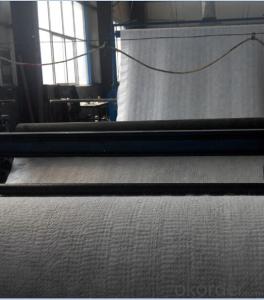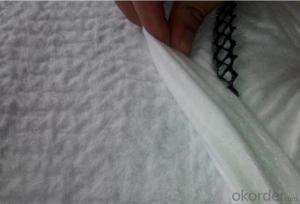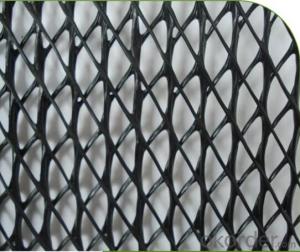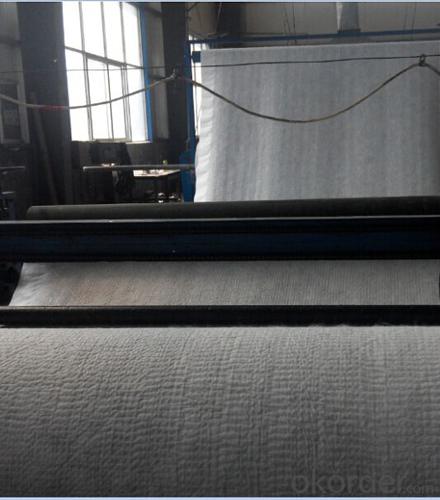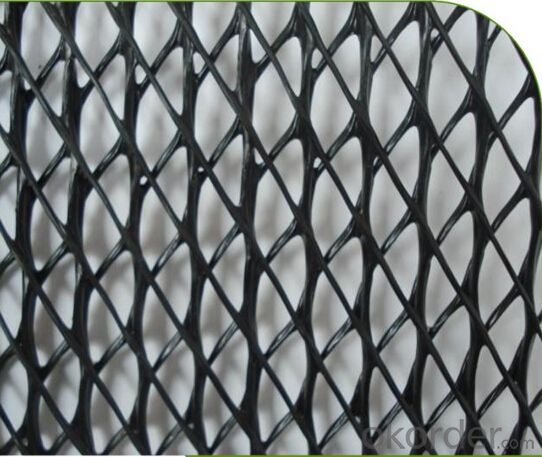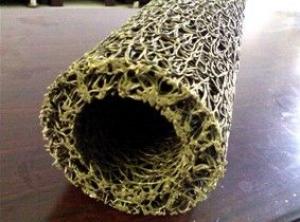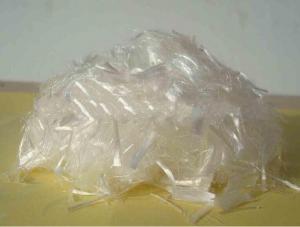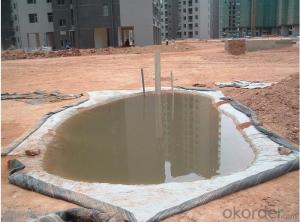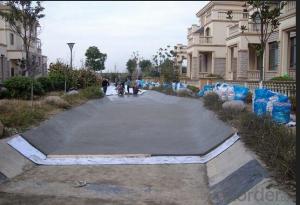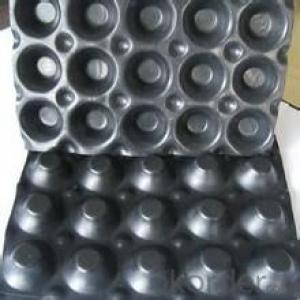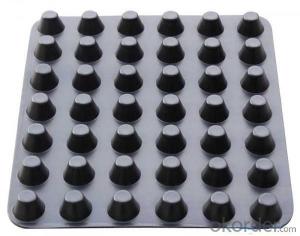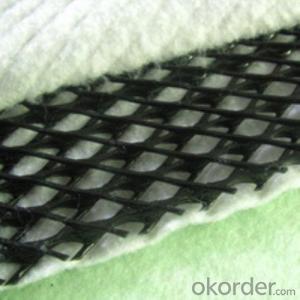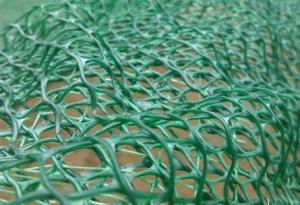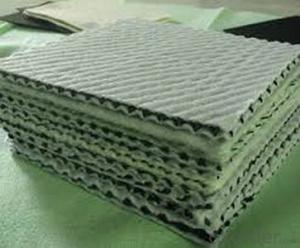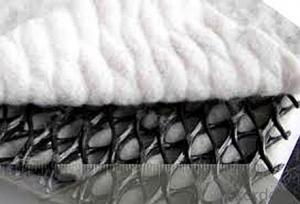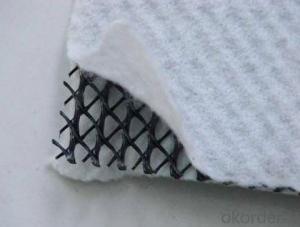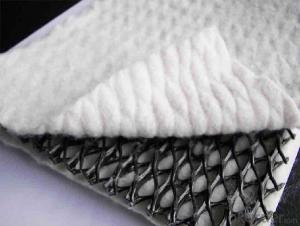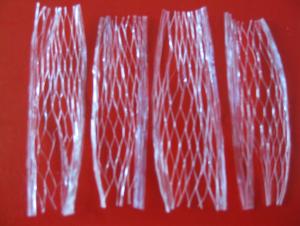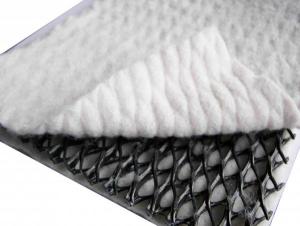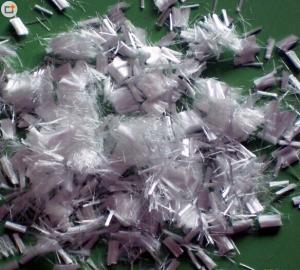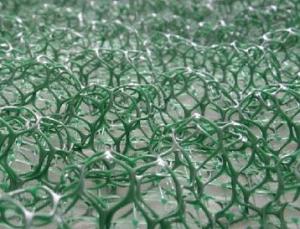HDPE Three-Dimension Compound Drainage Net
- Loading Port:
- Qingdao
- Payment Terms:
- TT OR LC
- Min Order Qty:
- 2000 m²
- Supply Capability:
- 200000 m²/month
OKorder Service Pledge
OKorder Financial Service
You Might Also Like
HDPE Three-Dimension Compound Drainage Net
Introuduction :
geonet can be used in the soft soil stabilization, base reinforcement, embankments over soft soils, seacoast slope protection and reservoir bottom reinforcement, etc
It prevents the slope rock from falling down ,which avoids the hurt to the human beings and the vehicle on the road; It prevents the road dregs packed by geonet from being washed away ,avoids the roadbed distortion and improves the stability of the roadbed; laying the geonet reinforces the road surface ,avoids development of the reflection crack. As reinforcing material of filling soil in retaining walls, it disperses the earth body stress and restricts the side-displacement. The stone cage, made of geonet, can prevent erosion ,collapsing and lost of water and soil when being used in dyke and rock slope protetion
Application:
Water Lagoons
Lagooning and Water Treatment Tanks,
Reservoirs, Liquid
Waste Ornamental Ponds,
Golf Courses
Drainage and Filtration
Landfill CappingTailing ponds,
Leach miningVertical Barriers
Erosion ControlTunnels
Linear and Surface Works
Consolidation of Margins Building – Parking:
Features:
1)Excellent drainage function, can bear long time hige press load
2)High tensile and shear strength
3Reduce the rate geotextile embedding into the core of geonet, can protect long time stable water conductivity
4)Tri-dimension composite geonet for drainage can bear more than 2000kpa compression load
5)Its anti-compression capacity is much larger than common geonet for drainage
6) Certificate :ISO14001:2004, ISO9001:2008
Specifications and technical parameters:
Drainage network core | units | Specification | ||||
Unit weight | g/m2 | 750 | 1000 | 1300 | 1600 | |
Thickness | Mm | 5.0 | 6.0 | 7.0 | 7.6 | |
Hydraulic conductivity | m/s | kx10-4 | Kx10-4 | Kx10-4 | Kx10-4 | |
Elongation | % | 50 | 50 | 50 | 50 | |
Tensile strength (core netwaork) | kN/m | 8 | 10 | 12 | 14 | |
Geotextile | g/m2 | Heavier grades of geotextiles can be bonded to geonet on request | ||||
Usages:
In the railway, highway and other transportation infrastructure, drainage system safety and the service life
of the project and its have inseparable relationship, in which the geotextile material is an important part
of drainage system, the drainage effect of 3D composite drainage net is particularly notable. mainly
used for tunnels, municipal engineering, reservoir, revetment in drainage engineering.
FAQ
1. Which payment do you accept?
For you convinience,our payment can be L/C,TT
2. Is free sample available?
We can supply free samples if you need.
3. How about your quality?
We have strict quality control system, we make testing on incoming raw material and finished products. Your third party testing is also welcomed. With high quality, our products are used on government projects at home and abroad. Our product quality is accepted by clients from all over the world
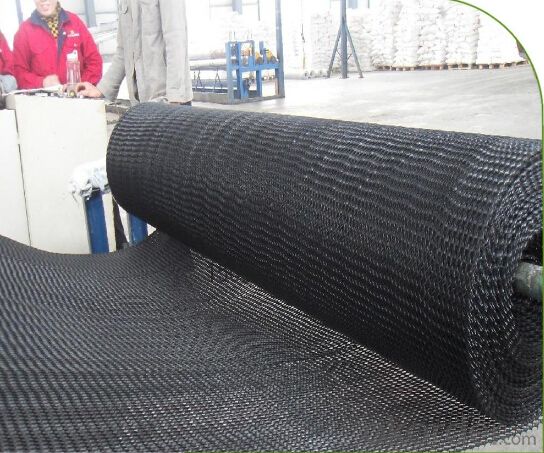
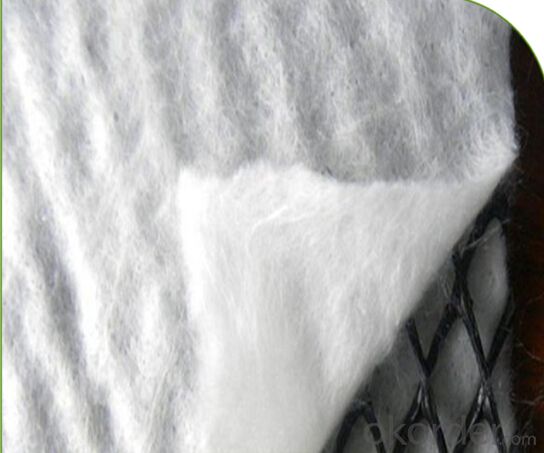
- Q: Can earthwork products be used in mining and excavation projects?
- Yes, earthwork products can be used in mining and excavation projects. These products, such as geotextiles, geogrids, and geomembranes, are commonly utilized in these projects to enhance soil stability, prevent erosion, control sedimentation, and provide reinforcement for various structures.
- Q: Can earthwork products be used for storm surge protection?
- Yes, earthwork products can be used for storm surge protection. These products, such as sandbags, berms, and levees, are commonly employed to create barriers that can help protect coastal areas from the destructive force of storm surges. The use of these earthwork products can effectively reduce the impact of storm surges by providing a physical barrier against rising water levels and preventing flooding, thus safeguarding communities and infrastructure.
- Q: Are those issues focused?
- The first chapter of the basic properties of civil engineering materials Chapter II of the hard inorganic inorganic cementitious materials Chapter III of the cement Chapter IV of concrete
- Q: What are the benefits of using geotextile tubes in environmental dredging?
- Geotextile tubes offer several benefits in environmental dredging. Firstly, they provide efficient dewatering capabilities, allowing for the separation of solids from water, which reduces the volume of waste to be disposed of. Secondly, they are cost-effective compared to traditional methods, as they require less equipment and labor. Additionally, geotextile tubes offer environmental advantages by minimizing the spread of contaminants, preventing erosion, and promoting habitat restoration. Overall, their use in environmental dredging helps in achieving more sustainable and environmentally friendly outcomes.
- Q: What are the cost implications of using geosynthetics in earthwork projects?
- The cost implications of using geosynthetics in earthwork projects can vary depending on the specific project requirements, but generally, geosynthetics can help reduce construction costs in several ways. Firstly, geosynthetics such as geotextiles and geogrids can serve as effective soil reinforcement materials, reducing the need for traditional reinforcement methods like steel or concrete, which can be more expensive. Additionally, geosynthetics can enhance the stability and performance of soil structures, allowing for the use of less expensive fill materials. They can also improve drainage and filtration, reducing the need for costly drainage systems. Overall, while there may be an initial cost associated with incorporating geosynthetics, their long-term benefits and potential cost savings make them a cost-effective choice for earthwork projects.
- Q: What is the purpose of using geonets in rainwater harvesting systems?
- The purpose of using geonets in rainwater harvesting systems is to enhance the filtration and drainage capabilities of the system. Geonets act as a barrier to prevent soil erosion, retain water, and promote the efficient flow of collected rainwater. This helps to prevent clogging and maintain the quality of the harvested water for various uses such as irrigation, groundwater recharge, or domestic purposes.
- Q: Can geogrids be used for slope reinforcement?
- Yes, geogrids can be used for slope reinforcement. Geogrids are commonly used to provide stability and reinforcement to slopes by distributing the load and increasing soil strength. They are effective in preventing erosion, soil movement, and slope failures.
- Q: Can earthwork products be used for water containment systems?
- Yes, earthwork products such as geosynthetic liners, geomembranes, and geotextiles can be used for water containment systems. These materials are designed to provide impermeability, stability, and erosion control, making them suitable for lining and reinforcing various water containment structures like ponds, reservoirs, canals, and landfills.
- Q: What are the different shapes available in earthwork products?
- There are several different shapes available in earthwork products, including squares, rectangles, circles, triangles, and irregular shapes.
- Q: What are the benefits of using geotextile fabrics in earthwork projects?
- There are several benefits of using geotextile fabrics in earthwork projects. Firstly, these fabrics act as a separator, preventing the intermixing of different soil layers and allowing for better drainage. Secondly, they provide reinforcement, improving the stability and strength of the soil. Additionally, geotextile fabrics help in erosion control by reducing sediment migration and preventing soil loss. They are also permeable, promoting water filtration and preventing the accumulation of excess moisture. Lastly, these fabrics are cost-effective and easy to install, making them a preferred choice for various earthwork projects.
Send your message to us
HDPE Three-Dimension Compound Drainage Net
- Loading Port:
- Qingdao
- Payment Terms:
- TT OR LC
- Min Order Qty:
- 2000 m²
- Supply Capability:
- 200000 m²/month
OKorder Service Pledge
OKorder Financial Service
Similar products
Hot products
Hot Searches
Related keywords
